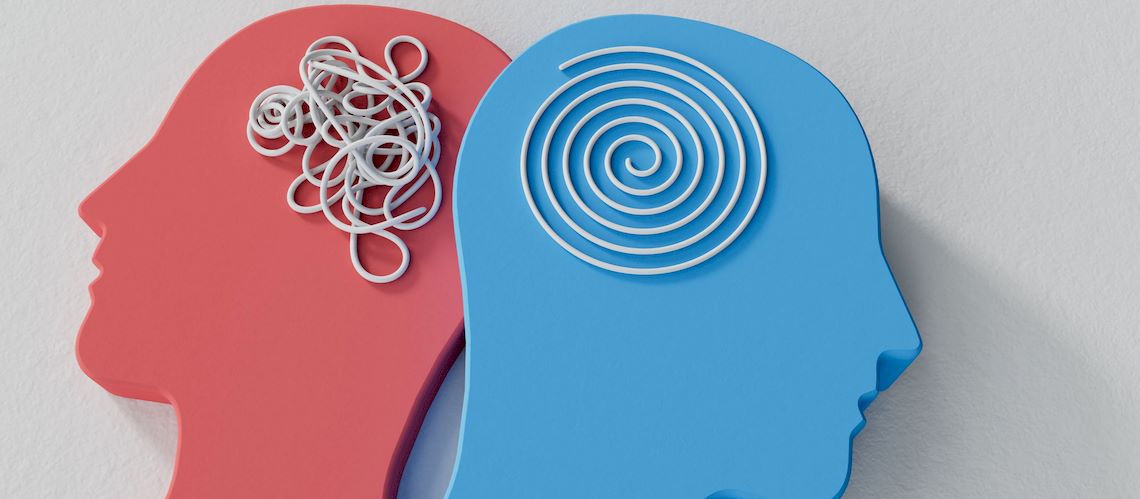The Excellence Nexus Framework seeks to move beyond conventional notions of well-being by cultivating extraordinary performance across six interrelated domains: Physical Peak (Body Prime), Mental Peak (Mind Prime), Emotional Peak (Heart Prime), Spiritual Peak (Soul Prime), Prosperity Peak (Wealth Prime), and Impact Peak (Impact Prime). Understanding the placebo and nocebo effects—how positive or negative expectations influence physiological and psychological health—provides a scientifically grounded pathway to unlocking excellence in each of these areas.
Decades of research have established that beliefs and expectations can trigger measurable biological changes, affecting pain perception, stress responses, immune function, and even cognitive performance (Benedetti, 2014; Carlino et al., 2014; Frisaldi et al., 2015). By strategically cultivating beneficial expectations, individuals can foster resilience, endurance, and emotional equilibrium. Conversely, unexamined negative beliefs can undermine progress, amplify discomfort, and limit potential (Benedetti et al., 2007; Justman, 2015).
Integrating these insights into the Excellence Nexus Framework ensures that each dimension of personal and professional growth is both informed by scientific evidence and enriched by a deeper philosophical understanding. This integrated approach reflects a longstanding tradition, seen from Aristotle’s emphasis on the unity of body and mind (Harrington, 2000; Evans, 2004) to modern interdisciplinary research into psychosocial healing (Specter, 2011; Vance, 2016).
Physical Peak (Body Prime)
Objective: Enhance physical performance, vitality, and resilience by leveraging the mind-body connection.
Rationale: Positive expectations activate neural circuits associated with pain modulation and reward, effectively mimicking certain pharmacological interventions (Benedetti, 2014). This effect can translate into tangible improvements in endurance, speed, and recovery times.
Application:
- Athletes who visualize successful outcomes, trust their training, and embrace supportive coaching cues often report reduced perceived exertion and enhanced performance (Carlino et al., 2014).
- Emphasizing constructive self-talk and guided imagery can help individuals persist through physical challenges, facilitating post-exercise recovery and long-term health maintenance.
Mental Peak (Mind Prime)
Objective: Increase cognitive capacity, creativity, and mental resilience through harnessing expectation-driven neural changes.
Rationale: Beliefs about one’s cognitive abilities can directly influence concentration, learning capacity, and problem-solving skills (Evans, 2004). Positive expectations can improve neurotransmitter release and stress regulation, enabling sharper focus and better memory retention.
Application:
- Students who consistently reinforce their confidence in learning new material tend to achieve better academic performance.
- Professionals who believe in their capacity to adapt and excel under pressure often maintain higher productivity, even in demanding situations.
Emotional Peak (Heart Prime)
Objective: Cultivate emotional stability, resilience, and equilibrium by mitigating the harmful impact of nocebo-driven stress responses and amplifying positive emotional states.
Rationale: Negative expectations can increase cortisol levels, heighten anxiety, and intensify pain sensations (Benedetti et al., 2006; Benedetti et al., 2007). By shifting away from such detrimental outlooks and reinforcing constructive emotions, individuals enhance their capacity for calmness, coping, and effective emotional regulation.
Application:
- Patients receiving affirmative communication from clinicians, rather than an overemphasis on potential side effects, experience reduced anxiety and improved emotional well-being (Benedetti et al., 2007; Frisaldi et al., 2015).
- Personal strategies such as mindfulness and cognitive reframing ensure that individuals challenge negative self-talk, thereby stabilizing their emotional responses and strengthening their resilience.
Spiritual Peak (Soul Prime)
Objective: Deepen spiritual fulfillment and inner harmony by integrating an understanding of placebo and nocebo effects into contemplative and belief-centered practices.
Rationale: Spiritual well-being often hinges on personal meaning, belief systems, and mindful engagement with the present moment. Expectation-driven neurobiological shifts show that believing in the efficacy of a spiritual or meditative practice can amplify its benefits, enhancing states of calm, purpose, and transcendence (Vance, 2016).
Application:
- Individuals who enter meditation or prayer sessions with a strong belief in their transformative power often report deeper spiritual insights, greater serenity, and a heightened sense of connectedness.
- Integrating positive expectancy into spiritual practices can fortify the harmony between body, mind, and soul, aligning personal values with physiological well-being.
Prosperity Peak (Wealth Prime)
Objective: Elevate decision-making, productivity, and financial success through the constructive use of positive expectations in professional and economic spheres.
Rationale: While research specific to financial contexts is less common, the underlying principles of belief-driven improvement in cognition, stress management, and perseverance easily translate to professional environments (Evans, 2004; Harrington, 2000). Confidence and positive expectancy can improve negotiation outcomes, entrepreneurial success rates, and strategic thinking.
Application:
- Professionals who maintain a constructive outlook are more likely to take informed risks, persevere through setbacks, and creatively solve problems.
- By minimizing self-doubt and fostering a growth mindset, individuals can enhance their ability to identify opportunities, make sound financial decisions, and achieve sustained prosperity.
Impact Peak (Impact Prime)
Objective: Amplify leadership effectiveness, community engagement, and long-term influence by leveraging the placebo effect’s principles in guiding and inspiring others.
Rationale: Leaders who project confidence, trust, and optimism effectively “prime” their teams to expect and strive toward success. Positive expectations shape group dynamics, increase collective motivation, and build a culture of excellence (Harrington, 2000; Specter, 2011).
Application:
- A manager who communicates achievable visions with conviction can inspire teams to surpass performance targets.
- Community leaders who emphasize potential, resilience, and cooperation foster environments where individuals collectively flourish, confirming that guided expectations can drive transformative social impact.
Mechanisms and Underlying Evidence
Underpinning these transformations are well-documented neurobiological pathways. Studies show that placebo effects engage brain regions—such as the prefrontal cortex and anterior cingulate cortex—involved in pain relief, emotional regulation, and motivation (Benedetti, 2014). Similarly, negative expectations (nocebos) can amplify physiological markers of stress and discomfort (Benedetti et al., 2006; Kong & Benedetti, 2014).
This scientific foundation validates the notion that beliefs are not mere abstractions; they translate into concrete biological events. By consciously shaping expectations, individuals can influence their neurochemical and hormonal milieu, thereby affecting health outcomes, mental acuity, emotional states, spiritual satisfaction, professional achievements, and social influence.
Philosophical Integration and Timeless Wisdom
The integration of these principles into the Excellence Nexus Framework resonates with longstanding philosophical insights that emphasize the unity and interplay of mind, body, and environment. Aristotle’s concept of eudaimonia suggests that a meaningful, flourishing life arises from balance, purpose, and aligned action (Harrington, 2000; Evans, 2004). Modern research on placebo and nocebo effects brings empirical clarity to these ancient intuitions, showing that well-being and excellence are not solely physical or mental but a synthesis of both, fueled by our deepest beliefs.
Conclusion
By acknowledging and strategically applying placebo and nocebo principles, the Excellence Nexus Framework becomes a robust model for transcending ordinary well-being. It calls for harnessing positive expectations, mitigating negative beliefs, and aligning one’s mindset with desired outcomes across all six peaks—Physical, Mental, Emotional, Spiritual, Prosperity, and Impact.
This deliberate cultivation of constructive beliefs, supported by rigorous scientific evidence and enriched by philosophical reflection, provides a clear, evidence-based path toward achieving extraordinary excellence. In embracing these insights, individuals empower themselves to shape their own health, performance, and influence, ultimately realizing a more balanced, fulfilling, and impactful life.
References
Benedetti, F., Lanotte, M., Lopiano, L. & Colloca, L. (2006) The biochemical and neuroendocrine bases of the hyperalgesic nocebo effect. The Journal of Neuroscience, 26(46), pp. 12014–12022.
Benedetti, F., Pollo, A., Lopiano, L. & Lanotte, M. (2007) When words are painful: unraveling the mechanisms of the nocebo effect. Neuroscience, 147(2), pp. 260–271.
Benedetti, F. (2014) Placebo effects: from the neurobiological paradigm to translational implications. Neuron, 84(3), pp. 623–637.
Carlino, E., Vase, L., & Benedetti, F. (2014) The effects of placebos and nocebos on physical performance. In: F. Benedetti, P. Enck, E. Frisaldi & M.S. Schedlowski (eds.) Placebo. Berlin: Springer, pp. 149–157.
Evans, D. (2004) Placebo: mind over matter in modern medicine. London: HarperCollins.
Frisaldi, E., Piedimonte, A. & Benedetti, F. (2015) Placebo and nocebo effects: a complex interplay between psychological factors and neurochemical networks. The American Journal of Clinical Hypnosis, 57(3), pp. 267–284.
Harrington, A. (ed.) (2000) The placebo effect: an interdisciplinary exploration. Cambridge, MA: Harvard University Press.
Justman, S. (2015) The nocebo effect: overdiagnosis and its costs. New York: Palgrave Macmillan.
Kong, J. & Benedetti, F. (2014) Placebo and nocebo effects: an introduction to psychological and biological mechanisms. In: F. Benedetti, P. Enck, E. Frisaldi & M.S. Schedlowski (eds.) Placebo. Berlin: Springer, pp. 3–15.
Specter, M. (2011) The power of nothing. The New Yorker.
Vance, E. (2016) Suggestible you: the curious science of your brain’s ability to deceive, transform, and heal. Washington, DC: National Geographic.




